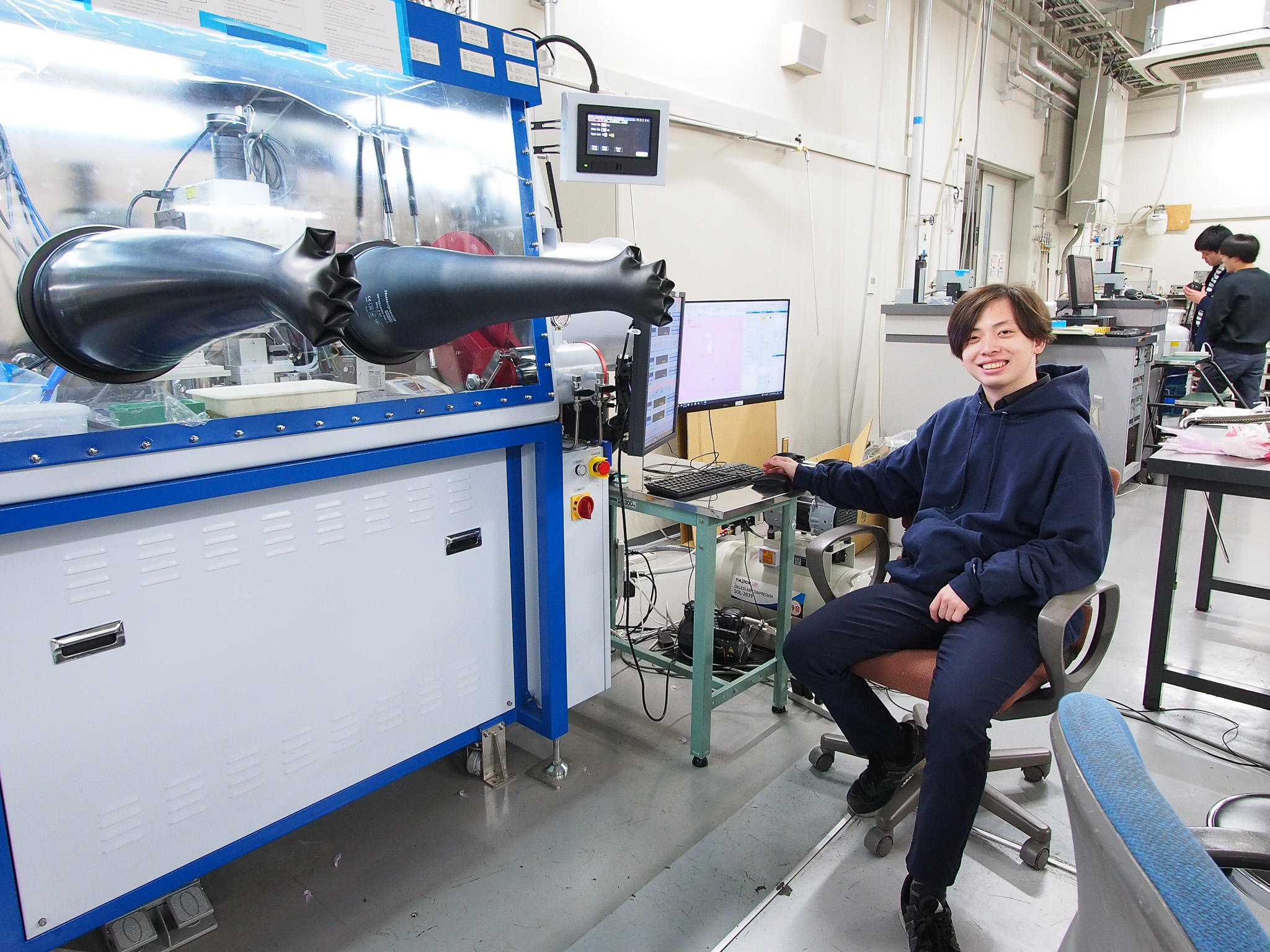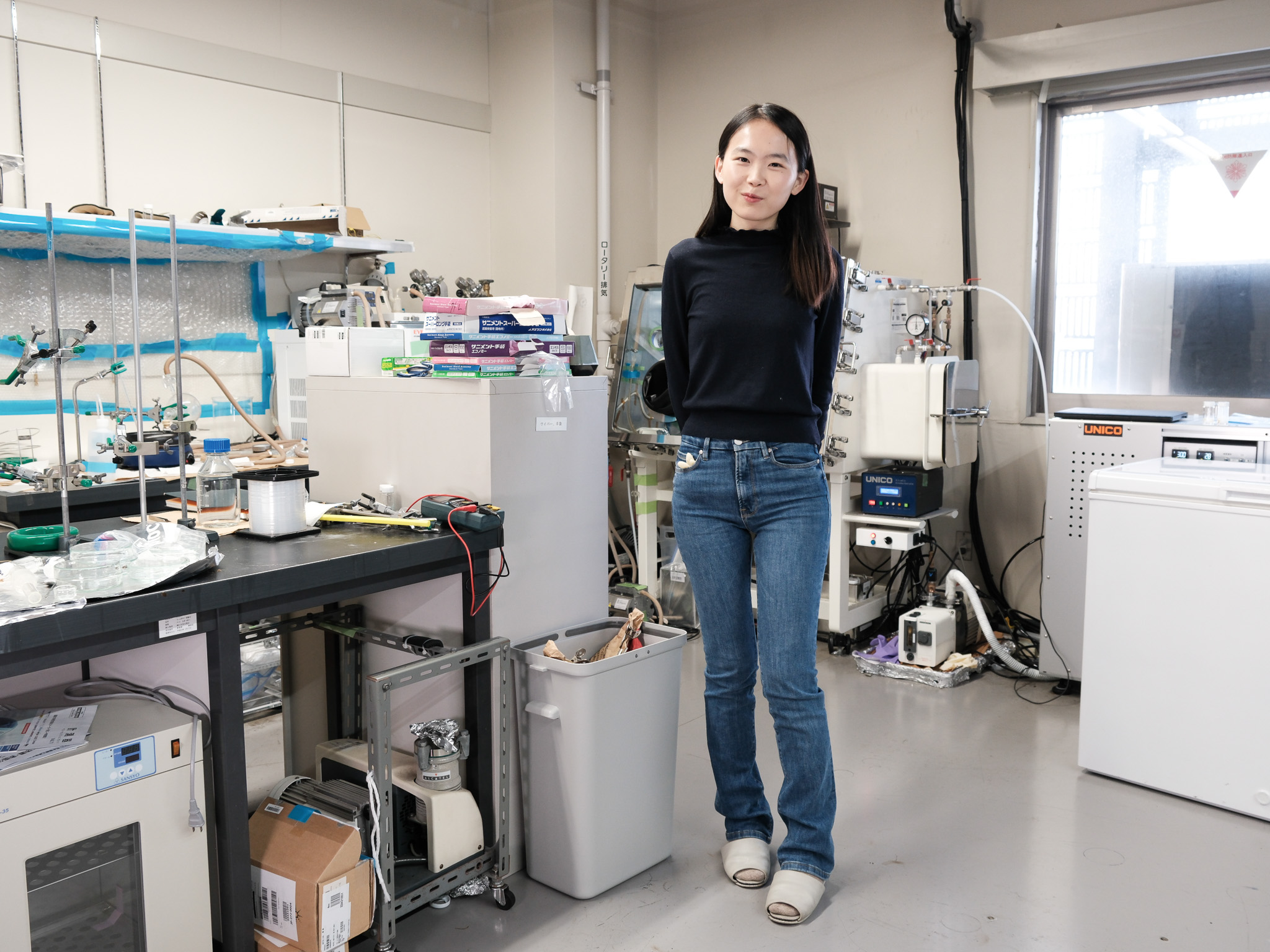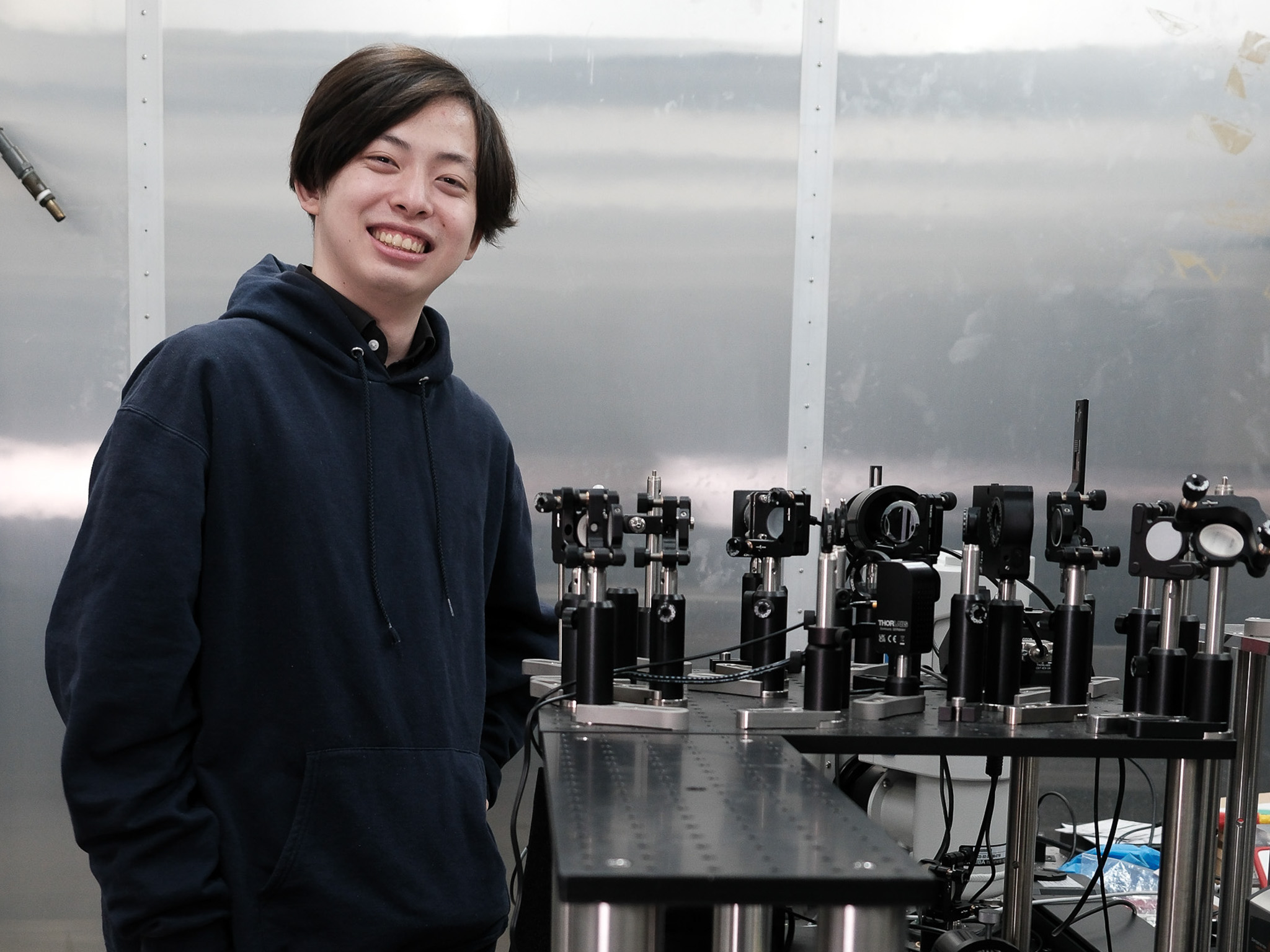在学生の声
研究について教えてください
私は原子層物質の物性について研究をしています。原子層物質は文字通り、原子の層が積み重なってできた構造をしており、スコッチテープなどのテープで剥離することによって簡単に単層~数層といった極限的な薄さに到達させることができます。また、これらの物質はファンデルワールス力によって原子層間が結合しているので、互いに異なる物質であっても容易にヘテロ接合を作成することができるという点も魅力です。
私はその中でも特に、原子層磁性体のスピン秩序について研究しています。磁性体には単原子層、つまり厚さ1 nm以下の最も薄い状態であっても磁気秩序を保っているものがあり、それらの磁気秩序を明らかにする研究をしています。
研究の楽しい・面白いところは?逆に大変なところは?
2次元では表面の効果によりバルク(3次元の結晶)とは全く異なる物性を急に示すことがあります。ただ薄くするだけでバンド構造が変化して光物性が変化したり、従来とは全く異なる原因から超伝導が発現したりといったことが起こっています。そういう日常的には全く分からないような事象に触れられ、自分の手であれこれと理屈を考えるのは非常に楽しいです。そういった事象が自分で作ったサンプルで発見されると、かなりワクワクしますね。
逆に大変なところは、サンプルが非常に繊細で容易に壊れてしまうところでしょうか。やはり物自体が小さいので、静電気や物理的な衝撃には非常に弱くて気を使います。一度測定をすると、もう二度と測れないみたいなこともザラにあるのでそれはちょっと大変です。サンプルが上手くできているかどうかは、測定しないと分からなくて、18個用意しても測定できたのはたった3個とか。測定できないと研究が進まないので焦ることもあります。でも測定すると結果が明瞭に出るので、出た時はすごく嬉しいし、楽しい。出なかった時との落差が大きくて、まるでギャンブルのようです。
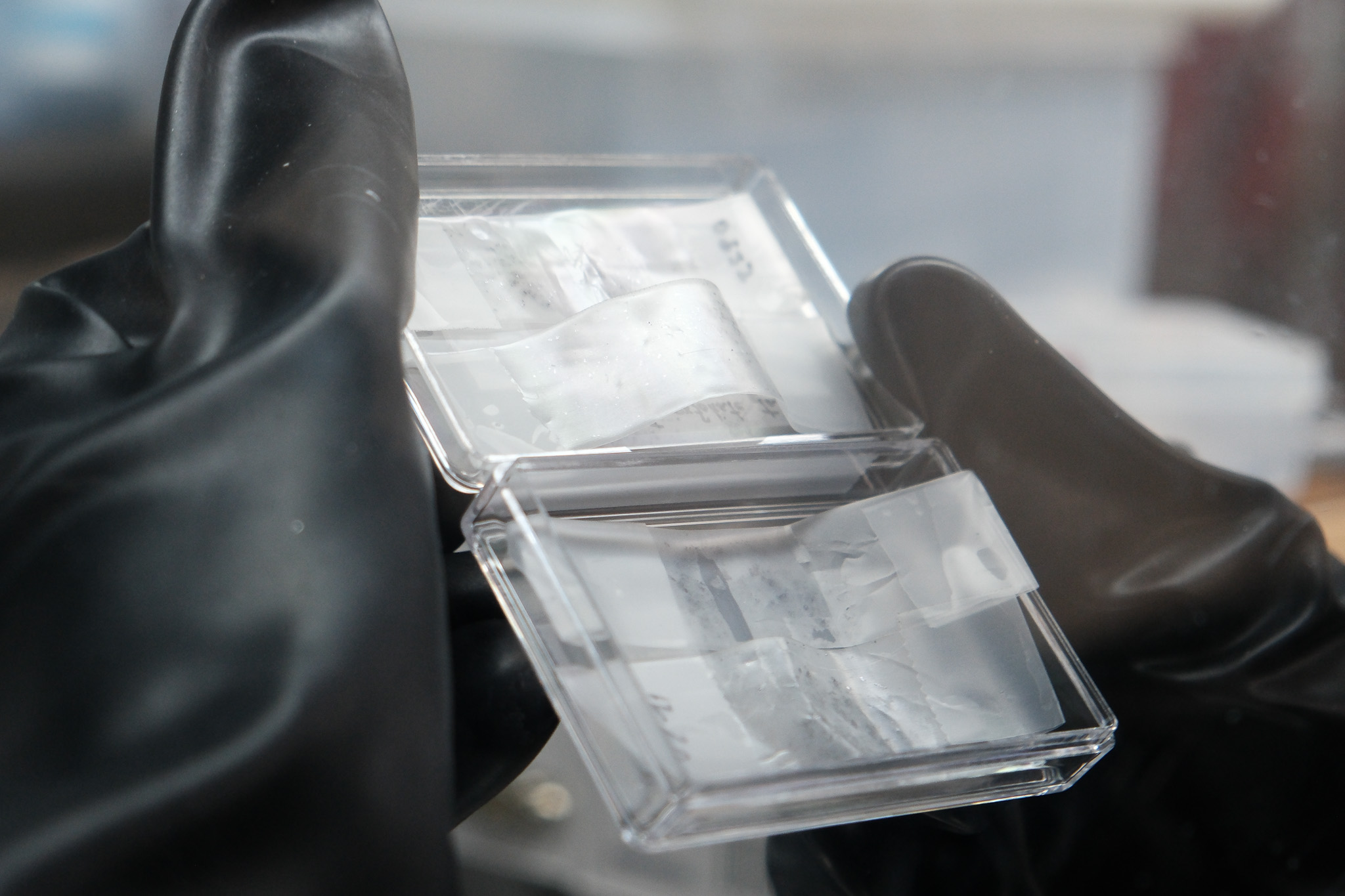
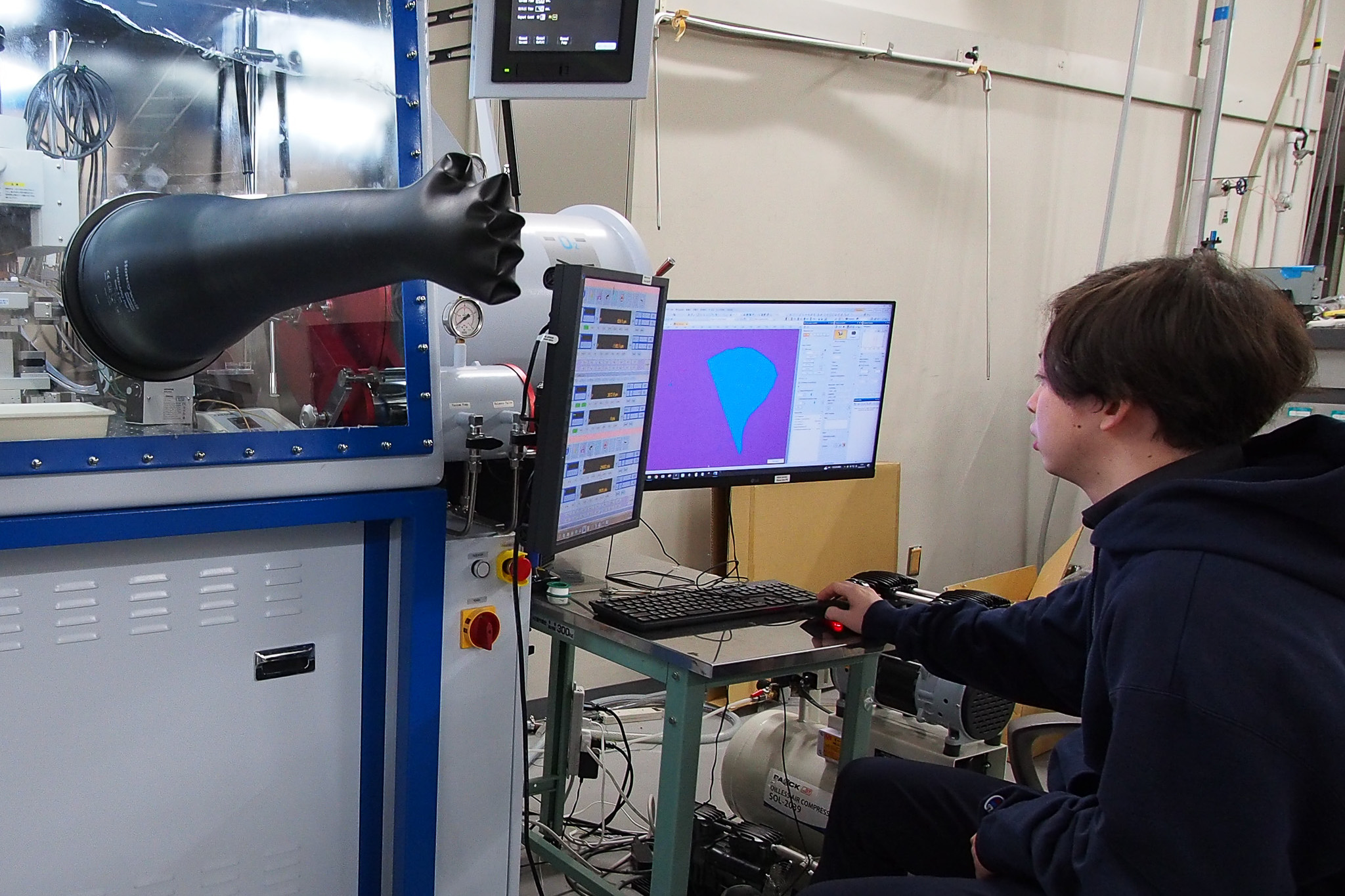
どのように専攻、研究室を探しましたか? 決め手などあれば教えてください
大学院進学自体は大学受験の頃から考えていました。実際に決めたのは大学3年生のころで、そこから大学院について調べたり、どんな勉強が必要かの情報を集めたりしました。
学部では半導体デバイスを作って、その特性を調べるという実用に近い研究をしていたのですが、大学院ではもっと基礎寄りの研究をしたいと思ってどんな先生がいるかを探しました。物理と量子が好きなので、量子コンピュータや量子物質まわりをやりたいと思って物理工学専攻を調べました。実はガイダンスには3年生と4年生の2回参加して、本郷も見学に行きました。物理工学専攻は名だたる著名な先生方もおり、ここでしかできない最先端の研究も多数あるので非常に魅力的だと思いました。
研究室に関しては、最後に決め手となったのは自分にとって過ごしやすい環境でのびのびと研究ができるという点です。やはり2年間あるいは5年間お世話になる場所なので、実際に行った時のメンバーの雰囲気や場所、周囲の環境などいろいろな要因はありますが結果的にとても正しい選択だったと思います。
実際に入ってみて、いかがですか?
まず、実験環境が本当に最高だと思います!研究室単位で持っている装置ももちろんすごいのですが、私の場合、物性測定に使うPPMS(液体Heで低温まで冷やして磁気特性や電気特性を調べる装置)は共同利用の装置で、他の実験施設ではそもそも液体Heを使えないとこもありますし、試料を測定するためのチップはQナノラボ(量子物質ナノ構造ラボの略称)のリソグラフィで配線を描いたり、物性研の環境をありがたく使わせてもらっています。毎週水曜日にあるi♡Caffeで他の研究室の人と研究の話をしたり、近くの研究室に話を聞きに行ったり、研究大好きな人にとっては天国みたいです。
研究室選びに悩んでいる学生さんにアドバイスするとしたら?
やはり一面的なことに捕らわれずに、「実際その研究室で研究をすること」を想像して総合的に判断するのが一番いいと思います。もちろん研究内容もすごく大事で、それを軸に決めるのは間違いないやり方だと思いますが、研究は実際に始めてみないとどんな展開になるかはさっぱりわからないところがあります。あまりこだわり過ぎずに、ある程度幅を持って探して、あとは自分の許容範囲内か考えて決める感じです。
研究以外だと、その研究室に行くことでどんな生活になるのか、メンバーにはどんな人がいるのかなども実際にその研究室を見てから行くのがいいと思います。細かい点だと、例えばスーパーやランドリーが近くにあるかとか、帰りが遅くなってご飯作る気力ない時に外食できるところが徒歩圏内にあるか、とか。結構おざなりにする人もいると思うんですが、研究に集中できるための生活環境って大事だと思うんです。もちろん人によると思うんですけど。
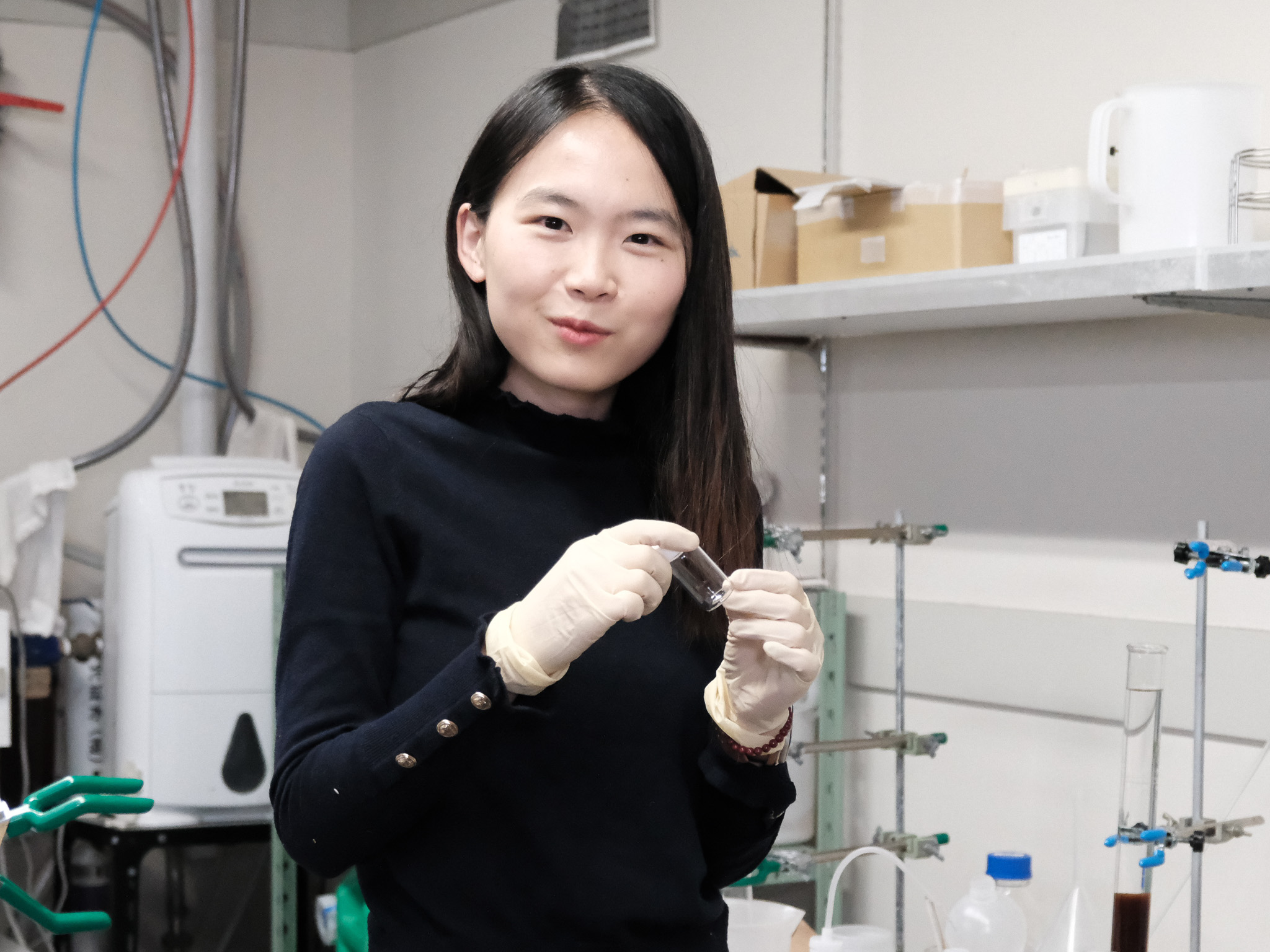
Ms. Xiaoni Zhang (D3, I.Matsuda Lab.) Chem., School of Science
(As of Jan. 2025)
What kind of research do you do?
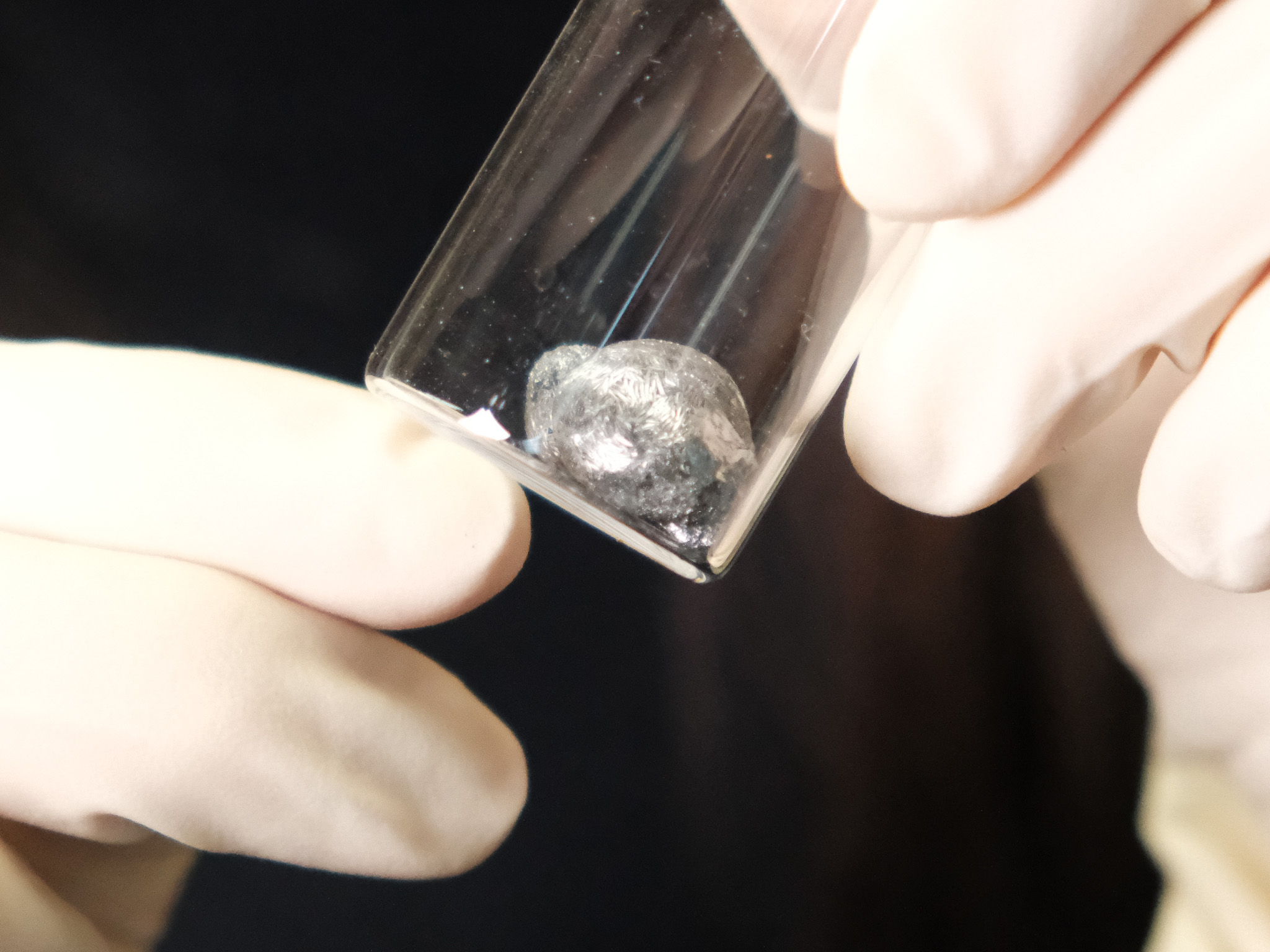
I am conducting research on two-dimensional (2D) boron-based materials, specifically focusing on hydrogen boride (often referred to as borophane) with a five and seven membered rings structure. My work involves synthesizing these novel materials and studying their unique properties, such as electronic characteristics. By employing techniques like chemical synthesis and spectroscopic methods (e.g., photoelectron spectroscopy), I investigate how their semimetallic behavior and the 2D Dirac electrons. Through this research, I aim to discover new material platforms for future applications in areas such as high energy efficiency devices, sensors, and energy storage.
When did you start thinking about or decide to go on to graduate school?
During my undergraduate studies, I pursued a double degree in mathematics and physics. I realized early on that I truly enjoy learning new things and rarely get tired when I’m immersed in academic work. This realization led me to consider graduate school as a natural progression. So, around the third year of my undergraduate studies, I decided to pursue graduate studies. In Chinese universities, many students go on to attend graduate schools abroad, and I remember professors encouraged this path as well.
How did you decide on your research topic and laboratory?
While preparing my undergraduate thesis, I tried to merge my background in both disciplines into one research project and came across graphene—a remarkably simple yet extraordinarily powerful 2D material. Seeing how graphene revolutionized its field made me want to explore 2D materials research further, hoping someday to develop a novel material with similarly groundbreaking potential.
I initially planned to pursue graduate studies in the United States, but encountered visa issues. While waiting, I conducted a three-month research internship at Institute of Science Tokyo (formerly Tokyo Institute of Technology). The study of 2D materials aligns perfectly with my interests, as it allows me to utilize my knowledge in both mathematics and physics.
My internship gave me a deep appreciation for the high-quality research environment in Japan, inspiring me to visit several other laboratories in the country. Ultimately, I was introduced to my current supervisor at the University of Tokyo, and after discussing research interests and goals, I felt that this lab would be the best fit.
Tell us about the I.Matsuda Lab.
One notable aspect of our laboratory is the freedom we have in choosing and planning our research. From the very beginning, each member can pursue topics that genuinely interest them. Once students move into the doctoral course, they have flexibility in scheduling their experiments and can propose new research plans if they can convince the professor of their potential.
Another unique feature is the broad range of research our lab undertakes. We work on everything from synthesizing novel materials and characterizing their properties, to developing new measurement techniques and exploring practical applications. This means you can carry out comprehensive research, essentially “from zero to infinity,” while benefiting from discussions with experienced members at every stage of your work. Overall, our environment encourages openness, collaboration, and innovation, supported by a close yet respectful relationship between students and the professor.
What I am truly grateful for about my professor is that he responds to me immediately with insightful advice whenever I reach out, wherever he is. (He is often on research trips around the world, making it sometimes challenging for our lab members to keep track of his whereabouts!) His prompt response and insightful advice allowed me to discover B14H26, which was recently published in a paper. Initially, I thought it was an impurity, but my professor advised me to investigate it thoroughly, suspecting it might be a new substance. Following his advice, I investigated further and confirmed the discovery of the new material. Acting quickly, my professor immediately contacted a professor at Tsukuba University, as well as Prof. Mori and Prof. Yoshinobu at ISSP. Without wasting any time, I gathered the necessary materials and rushed to consult with them. We discussed the required measurements and the preparation of samples, and then proceeded with the research.
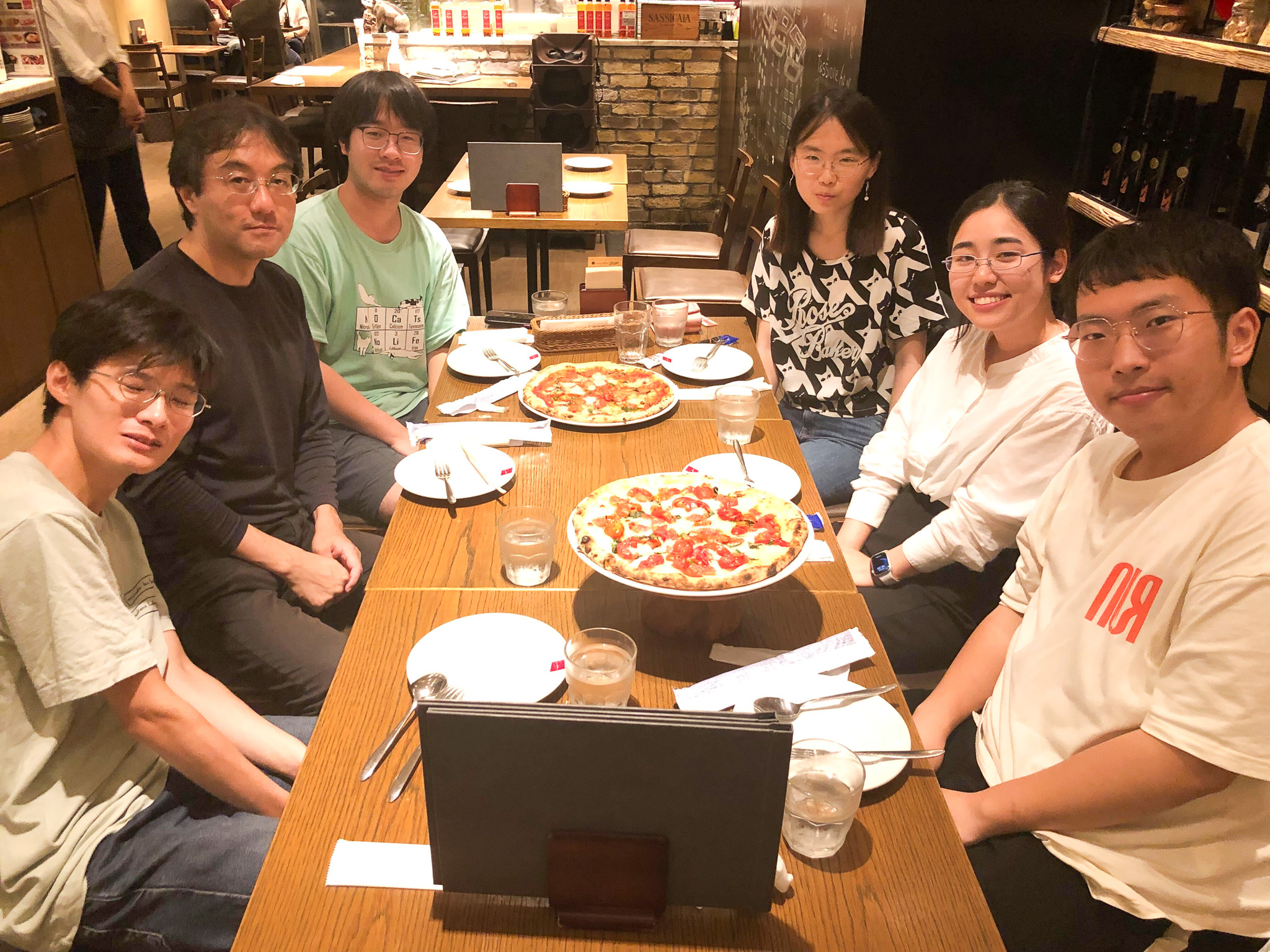
Conducting synchrotron radiation experiments, our lab members are located in various places, including NanoTerasu in Sendai, Miyagi, and here in Kashiwa. I conduct most of my research, ranging from synthesis to measurements, on the Kashiwa campus. However, 2-3 times a year, I visit SPring-8 in Harima, Hyogo, or PhotonFactory in Tsukuba, Ibaraki, for synchrotron radiation experiments. Since our lab members are dispersed, we conduct our lab meetings mostly via Zoom. This does not prevent us from having fulfilling activities outside of research. On special occasions, we gather in person for dinners or celebrations.
What advice would you give to students in choosing a laboratory?
I think the first step is to understand yourself, what you want to do, what is the most important thing for you (high technique? Friendly environment?), and maybe it is better to consider what is your most dislike parameter.
Then, visit the laboratory before you make the decision will be helpful.

